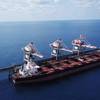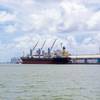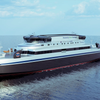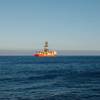Chinese Port Probe May Spread to Iron Ore, Soybeans
The Chinese probe into financing of copper and aluminium may spread to other commodities such as iron ore and soybeans, an executive of a commodity hedge fund said on Wednesday.
Banks and trading houses have been making urgent checks on the security of metal holdings in China, sparked by a suspected fraud at Qingdao Port, the world's seventh biggest. Police are investigating the duplication of warehouse receipts by a third-party firm on metal cargos used to obtain financing.
"I would say it's going to spill over from copper into iron ore, into soybeans. A huge amount of apparent demand in China is through shadow financing and holding stocks so you can have the cash," said Doug King, chief investment officer of RCMA Capital, which runs the $150 million Merchant Commodity Fund, which is managed from Singapore and London.
Pledging commodities to a bank, often using a warehouse receipt as proof of ownership, has become a popular way of raising finance in China, helping create huge stockpiles of metals at some ports in China.
"If you start to unwind that, then obviously that will cause a front-end pressure of physical supply in the market... It adds another level of nasty uncertainty."
At least two global banks involved in commodity financing in China have asked some clients to shift copper and aluminium, used as collateral for loans, to better regulated warehouses, three sources with direct knowledge of the matter told Reuters.
"I think it isn't just going to go away. You're going to see increased investigations over the next months," King told reporters at the International Derivatives Expo in London.
King also said that as major banks cut back exposure to commodities, other players which take on that business such as trading house Glencore will continue moving upstream and buy production assets to boost profits.
"When you're there as a trader and volatility is low and prices in a lot of commodities are low, that means your margin is low," said King, who is also involved in the RCMA Group, a separate firm which trades physical commodities such as rubber and sugar.
"So you have try to capture your margin somewhere else and that tends to be upstream. So I think the trend is definitely going to be increasingly getting vertically integrated... We'd love to get involved in there."
(Reporting by Eric Onstad, editing by David Evans)










